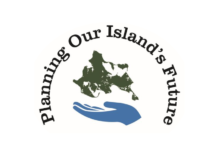With New York State launching its COVID-19 vaccination program to great fanfare Monday, questions about vaccines abound. Who will get them, what are the risks, where will they be distributed, when will we receive them, and how are these decisions being made?
While much remains unknown, below are answers culled from various sources.
On Monday, Sandra Lindsay, a frontline ICU nurse, became the first American to receive the COVID-19 vaccine in a non-trial setting. She was given the initial 0.3 mil dose of the Pfizer-BioNTech two-shot vaccine (the second injection is required 21 days later).
The event was streamed live and broadcast on television from Long Island Jewish Medical Center in Queens.
“I would like to thank all the frontline workers, all my colleagues, who’ve been doing a yeoman’s job throughout this this pandemic all over the world,” Linsday said in a Zoom conversation with Governor Andrew M. Cuomo after being vaccinated.
“I am hopeful. I feel I hope today, relieved,” she said. “I feel like healing is coming and this marks the beginning of the end of a very painful time in our history.”
High-risk health care, nursing homes first
New York State expected to initially receive 170,000 doses of the Pfizer-BioNTech COVID-19 vaccine with more to follow later this month, the governor’s office says. It is being administered under Emergency Use Authorization by the federal Food and Drug Administration. The vaccine, for use in those ages 16 and up, has not been approved by the FDA.
High-risk health care workers, nursing home residents, and staff are prioritized to be the first to receive the vaccine, the governor’s office says. After that, other long-term and congregate care staff and residents and EMS and other health care workers will be vaccinated. High-risk hospital workers include emergency room workers, ICU staff, and pulmonary department staff.
The governor’s office says the state will issue guidance for hospitals to select which patient-facing staff should be prioritized as high-risk in line with state rules.
Nursing home vaccines begin December 21
New York has opted into the federal government’s nursing home vaccination program. Under the federal program, employees of CVS and Walgreens pharmacies will vaccinate residents and staff in these facilities.
The first delivery of Pfizer-BioNTech vaccines for the federal nursing home vaccination program should begin arriving this week, with the federal program slated to begin on December 21.
New York is dedicating a portion of its initial allotment of 170,000 doses to this program, the governor’s office says. Portions of future state allocations will be used to help complete the program, ensuring all residents and staff are vaccinated.
Cold storage
The vaccines must be stored at very low temperatures. New York officials say they have identified 90 locations across the state with requisite cold storage capabilities. Vials of the vaccine are shipped in thermal containers and must be stored in an ultra-low temperature freezer between minus 80 to minus 60 degrees celsius (minus 112 to minus 76 degrees Fahrenheit).
They are thawed, at room temperature or in a refrigerator, and diluted before use in an intramuscular injection, Pfizer says.
New York’s cold storage sites will receive enough doses for approximately 90,000 patient-facing hospital staff, the governor’s office says. That’s about 40 percent of the entire patient-facing hospital workforce. The state expects all high-risk hospital staff will receive a vaccine by the end of week two, the governor’s office says.
Here are the estimated regional distributions:
- New York City — 72,000
- Long Island — 26,500
- Mid-Hudson — 19,200
- Capital Region — 7,850
- North Country — 3,700
- Mohawk Valley — 4,200
- Central New York — 6,400
- Southern Tier — 4,500
- Finger Lakes — 11,150
- Western New York — 14,500
Everyone else
Following the vaccination of high-risk health care workers, the priority will shift, the governor’s office says. Next, all long-term and congregate care residents and staff, EMS, and other health care workers will be vaccinated. Following them are essential workers and the general population, prioritizing those at highest risk.
Additionally, the state says the Department of Defense selected the New York National Guard to serve in one of 16 pilot programs around the country to initially distribute the Pfizer COVID-19 vaccine to military personnel. Members of the New York Army and Air National Guard who serve as part of the state’s COVID response will be eligible for the vaccine.
Adverse reactions
Like other vaccinations, the COVID-19 vaccination comes with risks and may cause adverse reactions, Pfizer says. People should be prepared to possibly experience: injection site pain, fatigue, headache, muscle pain, chills, joint pain, fever, injection site swelling, injection site redness, nausea, malaise, and swollen glands.
The FDA says severe allergic reactions have been reported following the Pfizer-BioNTech COVID-19 vaccine during mass vaccination outside of clinical trials. For this reason, the FDA says, “appropriate medical treatment used to manage immediate allergic reactions must be immediately available in the event an acute anaphylactic reaction occurs.”
Additional adverse reactions, some of which may be serious, may become apparent with the more widespread use of the Pfizer-BioNTech COVID-19 Vaccine, the FDA says.
Importantly, the FDA notes that the Pfizer-BioNTech COVID-19 vaccine may not protect all vaccine recipients.
Who is making the decisions?
The FDA determines which vaccines may be used. Read more about that process on the department’s website.
Establishing vaccine distribution guidelines for New York State is the job of the COVID-19 Clinical Advisory Task Force. Made up of health care and medical experts, it was formed earlier this fall to:
- Ensure COVID-19 vaccines are safe
- Advise on clinical best practices
- Ensure there are no barriers or delays in making the vaccine available
- Expeditiously review every COVID-19 vaccine authorized by the federal government
You can find more information in the plan published earlier this fall.
What to do while awaiting vaccination
While the vaccination process is underway, everyone should wear a mask, practice social distancing, and avoid gatherings. Even those who have been vaccinated or have recovered from COVID-19 should continue to wear masks, the Centers for Disease Control says.
“While experts learn more about the protection that COVID-19 vaccines provide under real-life conditions, it will be important for everyone to continue using all the tools available to us to help stop this pandemic, like covering your mouth and nose with a mask, washing hands often, and staying at least 6 feet away from others,” the CDC says on its website.
“Together, COVID-19 vaccination and following CDC’s recommendations for how to protect yourself and others will offer the best protection from getting and spreading COVID-19.”
Shelter Island information
The Town of Shelter Island has posted local information about local COVID-19 resources on its website at shelterislandtown.us/covid-19-info.




